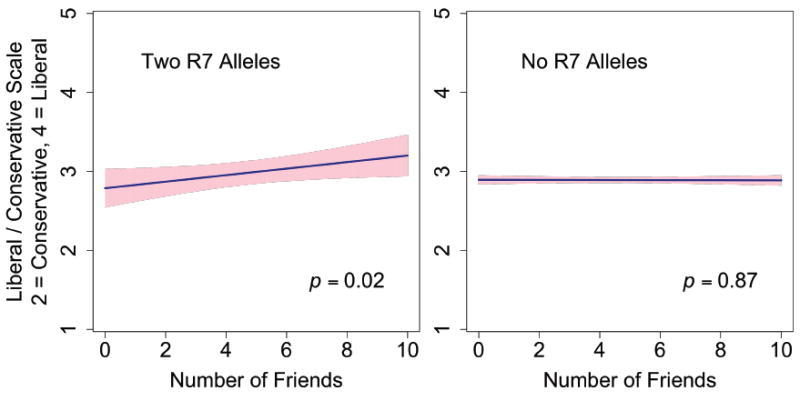
Friendships Moderate an Association Between a Dopamine Gene Variant and Political Ideology
Abstract
Scholars in many fields have long noted the importance of social context in the development of political ideology. Recent work suggests that political ideology also has a heritable component, but no specific gene variant or combination of variants associated with political ideology have so far been identified. Here, we hypothesize that individuals with a genetic predisposition toward seeking out new experiences will tend to be more liberal, but only if they are embedded in a social context that provides them with multiple points of view. Using data from the National Longitudinal Study of Adolescent Health, we test this hypothesis by investigating an association between self-reported political ideology and the 7R variant of the dopamine receptor D4 gene (DRD4), which has previously been associated with novelty seeking. Among those with DRD4-7R, we find that the number of friendships a person has in adolescence is significantly associated with liberal political ideology. Among those without the gene variant, there is no association. This is the first study to elaborate a specific gene-environment interaction that contributes to ideological self-identification, and it highlights the importance of incorporating both nature and nurture into the study of political preferences.
Citation:
J.E. Settle, C.T. Dawes, Peter K. Hatemi, N.A. Christakis, and J.H. Fowler, "Friendships Moderate an Association Between a Dopamine Gene Variant and Political Ideology" Journal of Politics, 72(4): 1189-1198 (October 2010)